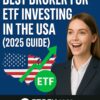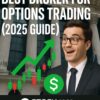Weaker Greenback No Longer Shields U.S. Stocks as Policy Uncertainty Mounts
The once-reliable insulation of the U.S. dollar for foreign investors in American markets appears to be fading. As trade tensions rise, alliances shift, and recession fears grow, the traditional safe-haven appeal of the greenback is being called into question.
A Painful Awakening for Foreign Investors
For years, global investors have held U.S. assets without hedging against currency risks, confident that the dollar would strengthen in times of crisis. That assumption is now being challenged.
- The S&P 500 has lost about 6% in dollar terms in Q1 2025, but European investors saw nearly double the losses due to the euro’s 5% surge against the dollar.
- Unhedged U.S. Treasury investments that appear nearly flat for Americans have resulted in over 5% losses for euro-based investors.
- The magnitude of these losses for foreign investors mirrors historic downturns, such as the 2018 U.S.-China trade war and the 2008 financial crisis.
A Worrying Shift: The Dollar No Longer a Haven?
A striking change in market behavior is emerging: U.S. equities and the dollar are now declining together. Historically, the dollar has strengthened during stock sell-offs, cushioning losses for global investors. That dynamic is breaking down, and Deutsche Bank warns that this could lead to a structural shift in how global investors view U.S. assets.
“If this correlation breakdown continues, a significant net reduction of dollar exposure would be on the table,” said Deutsche Bank strategist George Saravelos.
Trump’s Tariffs and a Deliberate Dollar Strategy?
As the end of Q1 nears, investors are bracing for Trump’s “reciprocal” tariff hikes, which could escalate trade tensions—particularly with Europe. This has fueled speculation that the administration intends to weaken the dollar, possibly as part of a broader plan to:
- Restore U.S. industrial competitiveness
- Shift global economic power away from the U.S. dollar
- Force increased domestic spending in other economies
With Europe ramping up defense spending due to weakening U.S. military commitments, some see this as a strategic win for Trump. But the cost at home may be severe, with a potential sharp repricing of U.S. assets.
Conclusion: A New Market Paradigm?
The U.S. faces a pivotal moment. If the dollar loses its traditional role as a safe haven, global investors may rethink their exposure to U.S. assets. With America’s investment deficit at $24 trillion, any shift away from dollar-denominated holdings could have major economic consequences.
Will this be a temporary market disruption, or are we witnessing the start of a deeper transformation in the global financial system? Investors and policymakers alike will be watching closely.











